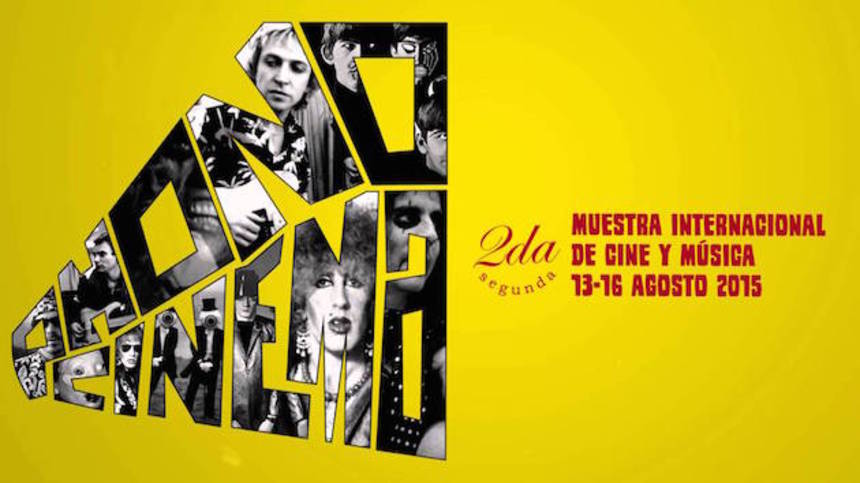Interview: Phono-Cinema Directors On Mexico's Film And Music Exhibition

How can a little film exhibition stand out in Mexico, where practically every week there's a film festival of some sort going on? Phono-Cinema, the international exhibition of cinema and music, has an idea: being a platform in Mexico to premiere films of the genre that hardly have any possibilities to be shown elsewhere.
For its second edition this weekend (August 13-16), Phono-Cinema will present six films at four different venues in Mexico City: Centro de Cultura Digital, Cineteca Nacional, Cine Tonalá and Cinematógrafo del Chopo.
To learn everything about Phono-Cinema we sat down to talk with Ricardo Jacob (co-director and programmer) and Jorge Ramírez (co-director and producer).
ScreenAnarchy: How was the genesis of Phono-Cinema?
Ricardo Jacob (RJ): It all started almost ten years ago at the FICCO. We were part of the programming team of that festival, together with Eva Sangiorgi, Michel Lipkes and Maximiliano Cruz. This generation now is in charge of several film festivals. We were together again for Cinema Planeta, a festival about film and environment. One day we were talking about the lack of a project focused on movies and music, so Phono-Cinema was born from a conversation I had with people I really like and know the scene. I'm also a musician so it was kind of invevitable.
Can you tell me about this year's programming?
RJ: The first film is Can't Stand Losing You: Surviving the Police, based on the homonymous book that Andy Summers wrote. It tells the story since the sixties when he was a jazz guitar player and also his psychedelic facet before he met Stewart Copeland and Sting.
We Are Twisted Fucking Sister tells the story of Twisted Sister before they were famous. It's about the ten years that they spent playing at New York suburbs more than 3,000 self-produced shows.
Hardcore Devo Live! is about the music that Devo made between 1974 and 1977. Later, when they became famous and started to make records, that music was abandoned. They refer to this period as "Hardcore Devo". When one of the band's members passed away, they started to play said music again. This doc features a concert and new interviews.
Super Duper Alice Cooper is the story of Vincent Furnier, better known as Alice Cooper, since his beginnings in Detroit. It touches such themes as his jealous band mates, his problems with drugs and alcohol and his eventual rehabilitation.
Shield and Spear explores the current situation of the artistic scene in South Africa, 20 years after the Apartheid, when the artists still have to live with the racial segregation issue.
Finally, we have two exclusive screenings of Theory of Obscurity: A Film About The Residents, a documentary about the iconic, cult rock band The Residents. Nobody knows who they really are and they have remained anonymous during 40 years, making records, videos and DVDs. The doc though is not about discovering who they are, as it focuses on their art's impact on pop culture.
Beside the quality and year of production, what was the criteria to select these films?
RJ: That the theme was transcendent or the band interesting.
Jorge Ramirez (JR): Our documentaries help us to understand they why of certain musical aspects. There are people, for example, who think masked musicians only have few years of existence, while in reality The Residents have a trajectory of more than 40 years.
RJ: We don't like propagandistic documentaries in which a band functions as their own producers and want to tell only one side of the truth. I watched many docs like that and I wasn't interested, even if the band was famous, because the story was clearly false.
JR: Also, some documentaries made for TV are really good, like those produced by the BBC, but we couldn't use them as it was senseless to screen them on the big screen.
This year's programming indicates a tendency towards the revalorization and demystification of bands that maybe doesn't mean much to the new generations, like Devo and Alice Cooper...
RJ: Right, the revalorization is important. I think there's a necessity to know the stories of these musicians that wrote the songs of the last few decades. It's never useless to know who are the real pioneers of the sounds of today, and also to learn the human side of the musicians. That's also the value of the documentary genre.
For additional information about, Phono-Cinema, visit their official site..







